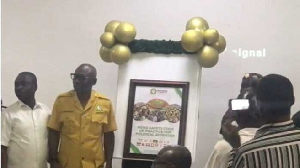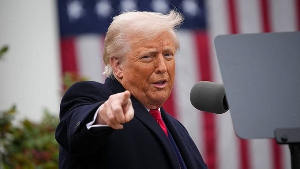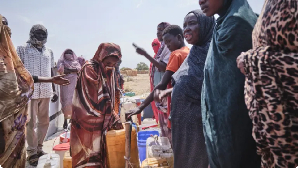The National Road Safety Authority (NRSA) has introduced a ‘Road Safety Code of Practice for Political Activities’ aimed at reducing road-related fatalities during the campaign season.
This code serves as a guideline for politicians, political parties, and their supporters to prioritize road safety as they prepare for the upcoming December elections.
This initiative comes in response to the alarming trend of increased deaths during election years, often caused by political parties' disregard for road traffic rules and regulations during intense campaign activities.
David Osafo Adonteng, the Director-General of NRSA, emphasized that the code mandates political party leaders to ensure that all vehicles used in campaigns are in proper condition and driven only by professionally qualified drivers.
He urged political parties to integrate this code of practice into their campaign strategies to help reduce road fatalities during this year’s election season.
The overarching goal of the code is to make Ghana’s road transportation system the safest by “reducing the incidence of road traffic crashes, fatalities, and injuries through the promotion, development, and coordination of road safety policies.”
Statistics from the National Road Traffic Crash and Casualty indicate a significant increase in road crashes during election years.
In the 2016 general election, road crashes rose by approximately 11%, with injuries up by 14% and fatalities by 9% compared to the previous year.
Similarly, in 2020, road crashes surged by 10% in the lead-up to the elections, resulting in a substantial rise in both injuries and deaths.
The World Health Organization's 2023 Global Status Report on Road Safety further highlights that traffic crashes have an economic impact, costing Ghana between 3-5% of its GDP.
The NRSA noted that “global best practices show a relationship between political commitment and the improvement of a country’s road safety situation.
Without political will and participation, the necessary systems to enhance road safety will be delayed, costing human lives and property.”
Historically, election years in Ghana have seen a spike in road-related deaths, largely attributed to political party supporters' disregard for traffic regulations during campaign periods.
The NRSA’s data shows that since 2000, election years consistently record higher numbers of road crashes, injuries, and fatalities compared to non-election years.
For instance, in December 2016, 44 people died in 100 crashes involving 157 vehicles, representing a 15.6% increase over the same period in 2015.
Similarly, in 2020, 44 people lost their lives, and 169 were injured in 155 recorded crashes, marking a 21.9% increase from the previous year.
These statistics further reveal that, with the exception of one year, every election year since 2000 has seen higher rates of crashes, injuries, and deaths compared to the years before and after the elections.
Notably, deaths increased by 27.4% in 2004 compared to 2003, decreased by 5.1% in 2008 compared to 2007, and rose by 1.9% in 2012 compared to the previous year.
Politics of Friday, 23 August 2024
Source: classfmonline.com













